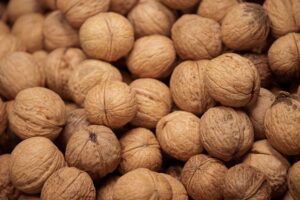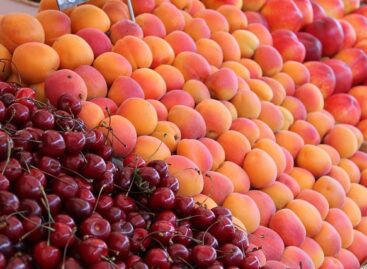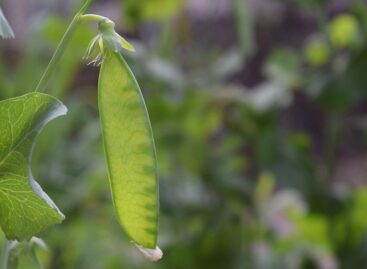The decline of the walnut sector – under the pressure of import and climate challenges
The domestic walnut harvest has fallen to a historic low: in 2024, only 5,300 tons of walnuts were produced in Hungary, which is the lowest amount in the past ten years. Meanwhile, more and more imports are arriving from Romania and Ukraine, while Hungary’s export potential has shrunk by a fifth – according to FruitVeB data, which was reviewed by Agricultural Sector.
 While in 2013 walnut cultivation was carried out on 5,800 hectares, the area of domestic plantations has now grown to more than 9,100 hectares – however, the growth has not been matched by efficiency. Two-thirds of Hungarian walnut plantations are still based on outdated, extensive farming, and in many cases were only planted for subsidies, not for commercial production. As a result, the national average yield is only 0.6 tons/hectare, while values over 4 tons were measured on intensive, irrigated plantations.
While in 2013 walnut cultivation was carried out on 5,800 hectares, the area of domestic plantations has now grown to more than 9,100 hectares – however, the growth has not been matched by efficiency. Two-thirds of Hungarian walnut plantations are still based on outdated, extensive farming, and in many cases were only planted for subsidies, not for commercial production. As a result, the national average yield is only 0.6 tons/hectare, while values over 4 tons were measured on intensive, irrigated plantations.
There are huge differences in crop results: due to the walnut shell borer, fungal diseases and the increasingly frequent heat waves of climate change, yields have fallen drastically, with producers in many places reporting losses of 80–90%. Due to the discoloration of the walnut kernel, most of the crop became unsellable in shell form.
Due to the low supply, demand drove up prices: in 2024, shelled walnuts were sold by producers for 829 forints per kilogram, while walnut kernels were sold for 2835 forints. The price of second-class walnut kernels was around 2,000 forints.
Exports became imports
According to FruitVeB, before 2018 we exported over 2,000 tons of walnuts in shell, but today our export capacity has decreased by a quarter. Although Hungary is still self-sufficient in walnuts in shell, walnut kernel imports are constantly increasing, primarily from Romania and Ukraine. At the European level, the share of Hungarian walnuts in exports is only 3–5%.
The price of climate change
In the walnut sector, climate change is no longer a future threat, but an everyday reality: while 3–5 sprayings were sufficient before, today more than 10 plant protection treatments are needed against pests. Neglected plantations may disappear in the short term, while large-scale farms are already using modern, “feeding trap” methods to protect against the walnut shell borer.
There is no future without intensive plantations
A yield of at least 3 tons/hectare is required for profitable production today – but only modern, irrigated, mechanized plantations can provide this. The proportion of such intensive walnut plantations in Hungary is only 3000 hectares, or one third of the total area.
According to FruitVeB, the quality of domestic walnuts is still recognized worldwide – based on size and content, they are in the top 3 – but competitiveness is impaired by the fact that in countries with warmer climates (Chile, Argentina) no energy needs to be spent on drying, so they produce at a much lower cost.
The future is in the hands of professional farmers
According to FruitVeB, only those producers who are capital-intensive, have high expertise and work through integrated sales channels will be able to survive in the long term. In the case of other plantations, the amounts spent in the form of subsidies will never pay off – especially in the face of extreme weather.
According to the organization’s summary, the shrinkage of the Hungarian walnut sector is inevitable if intensive plantation developments are not launched en masse. At the same time, market demand remains strong: the demand for walnuts is growing worldwide, so those who produce efficiently and in a modern way still have a future in the sector.
Related news
In 2025, FruitVeB considered the support and professional coordination of the TÉSZs as its priority task
🎧 Hallgasd a cikket: Lejátszás Szünet Folytatás Leállítás Nyelv: Auto…
Read more >2025 brought good quality harvests for open-field vegetable growers
🎧 Hallgasd a cikket: Lejátszás Szünet Folytatás Leállítás Nyelv: Auto…
Read more >Related news
Innovations, success stories and awards on the same stage
🎧 Hallgasd a cikket: Lejátszás Szünet Folytatás Leállítás Nyelv: Auto…
Read more >Farewell day at the 60th anniversary EuroShop trade fair
🎧 Hallgasd a cikket: Lejátszás Szünet Folytatás Leállítás Nyelv: Auto…
Read more >NAV: Women’s Day inspections begin
🎧 Hallgasd a cikket: Lejátszás Szünet Folytatás Leállítás Nyelv: Auto…
Read more >









